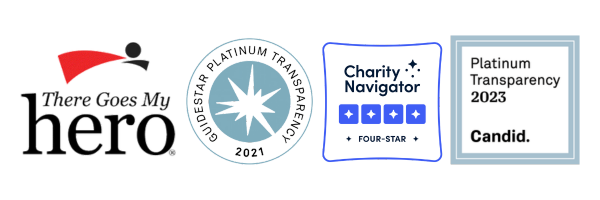Age Restrictions on The Bone Marrow Registry
Finding out you are ineligible to register as a bone marrow donor can prompt feelings of sadness and frustration from many willing candidates. It is important to remember that these age restrictions and eligibility requirements on the bone marrow registry are put in place to provide the most viable options to blood cancer patients in need of transplants. The age limit was not designed to discriminate, but to allow for successful treatment outcomes.
I am over the age of 55, why can’t I donate?
Even at 55 years of age or older, a person can be in excellent health, but the truth is, our chances of health problems and complications during medical procedures increase as we get older. In twenty percent of donations, a surgical procedure is performed under anesthesia to extract the bone marrow from the donor’s hip. As we age, we become more and more vulnerable to the side effects of anesthesia, including memory loss, confusion, heart attack, or stroke.
In addition to potential donor risk, older donors can also jeopardize the safety and wellness of bone marrow recipients. As blood stem cells age, their ability to efficiently regenerate and function properly deteriorates. For a successful donation, the stem cell yield needs to be higher in order to improve the chances of success.
I am under the age of 18, why can’t I donate?
Unfortunately, individuals under the age of 18 are not eligible to register on the bone marrow registry. The legal age of consent in the United States is 18, and because bone marrow donation is a voluntary medical procedure, the donor must be of legal age to give informed consent. In cases of voluntary medical procedures, guardians and parents cannot sign a release or give consent for a minor.
Do age restrictions on the bone marrow registry still apply for family members?
When a bone marrow donor is found within the family, the age limitations do not apply as they normally would. Rather than being swabbed to join the bone marrow registry, underage family members can be tested as a match for just the familial patient.
Once a patient is identified as needing a bone marrow transplant, their siblings are normally tested immediately because they have a 25% of being a match. If no siblings are identified as matches, parents and close relatives are encouraged to get swabbed. Haploidentical matches, commonly known as half-matches, are normally found in other relatives. Almost all patients have a half-match in their family, but haploidentical transplants are not always a viable option for everyone, some patients need as close to a perfect match as possible for the best chances of survival.
If a sibling match or haploidentical match is found in a relative who is a minor, the relative can donate their bone marrow to the patient as long as the donor and the recipient are in the same family and mutually consent.
If you are either too old or too young to join the bone marrow registry, don’t worry, there are so many other ways to make an impact in the lives of blood cancer patients. Volunteer your time, become an ambassador, or host a bone marrow registry drive in your community. If you would like to learn more about how to get involved, please contact There Goes My Hero at 443-339-4375 or email us at stephanie.cupp@theregoesmyhero.org.

